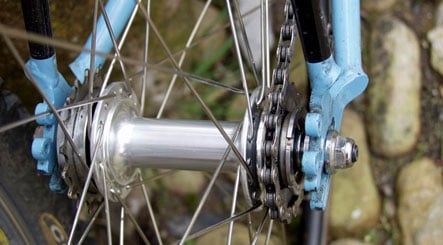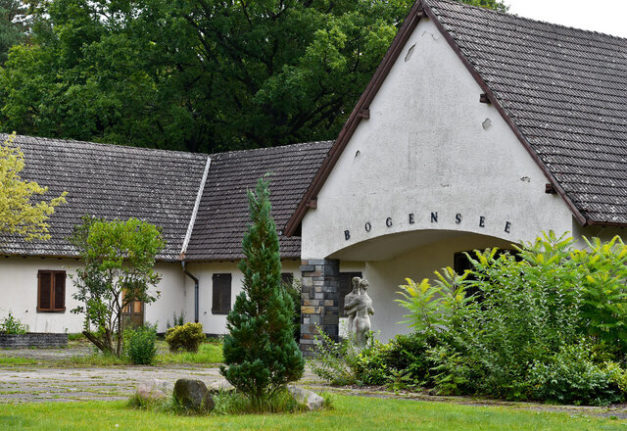In a country where cyclists are expected to have a working bell on their bikes, it was probably only a matter of time before fixies fell afoul of the law in Germany.
Evolved from indoor track bikes with no gears and brakes, fixies have long been favoured by couriers and other cycling enthusiasts in big cities around the world. But a surge in popularity in Germany has prompted an unprecedented backlash by traffic cops in Berlin in recent months.
“Interest in fixies has exploded in the past two years,” said Dustin Nordhus, owner of the Cicli Berlinetta bike shop in central Berlin. “Everyone sitting in an office all day thinks they’re cool these days.”
Nordhus has filled his shop with gorgeous high-end racing bikes that are street legal, but he also makes custom track bikes for a growing market of fixie riders.
Since there’s no freewheel on a fixie, the pedals continue to rotate as long as the bike is moving forward. This means the rider either has to slow the bike by fighting the momentum or brake by locking up the back wheel to skid to a stop.
Seeing what they considered a growing danger to traffic safety, Berlin police announced this spring they would begin cracking down on fixie riders. Since only April, they’ve confiscated 18 bicycles.
“Fixies have become a real problem,” Rainer Paetsch, a Berlin police official for traffic issues, told The Local. “It wasn’t a hunt, but we decided to do something to undercut this trend.”
To get their bikes back, cyclists have to pay a fine and convince the authorities they won’t ride them on the street anymore – or at least show an inclination to install brakes on them.
“For all I care they can ride them in their backyards,” Paetsch joked. “We just want people to realise it’s too risky to ride them around the city. Then we’ll be content that we’ve helped improve traffic safety.”
Excessive enforcement?
But one rider who lost his bicycle last month said the police were taking the issue too far.
“This criminalisation is completely overdone,” Stefan, a 30-year-old bike courier, said on the edges of European Cycle Messenger Championship in Berlin in early June. “I was stopped by eight or nine cops who looked totally bored. I tried to tell them they were taking away how I make my living, but they didn’t seem to care.”
As an experienced track cyclist, he said riding a fixie actually made him more aware while negotiating city traffic. But he admitted many people are now buying fixies just because they’ve become cool.
“It’s the trendiness that’s the real problem,” Stefan said, adding that he was slapped with an €80 fine and three points on his driver’s licence for traffic violations.
But Benno Koch, Berlin’s official ombudsman for bicycle issues, said all the hype surrounding fixies had left the police with little choice but to crack down.
“I’ve been getting lots of calls from worried fixie riders,” he told The Local, explaining that he had been able to defuse the situation somewhat by hammering out the conditions cyclists can get their confiscated bikes back.
Koch admitted that most of the city’s hundreds of fixie riders were probably excellent cyclists, but warned others from joining the fixed-gear trend.
“The people that ride these bikes have to know what they’re doing,” he said. “And in my opinion fixies really ruin your knees. You’re not young forever, how far do you really want to follow the hype?”
But anyone still choosing to hop on their fixie in Berlin might want to consider getting a brake installed soon – the police will start their next round of citywide traffic checks in July.



 Please whitelist us to continue reading.
Please whitelist us to continue reading.
Member comments